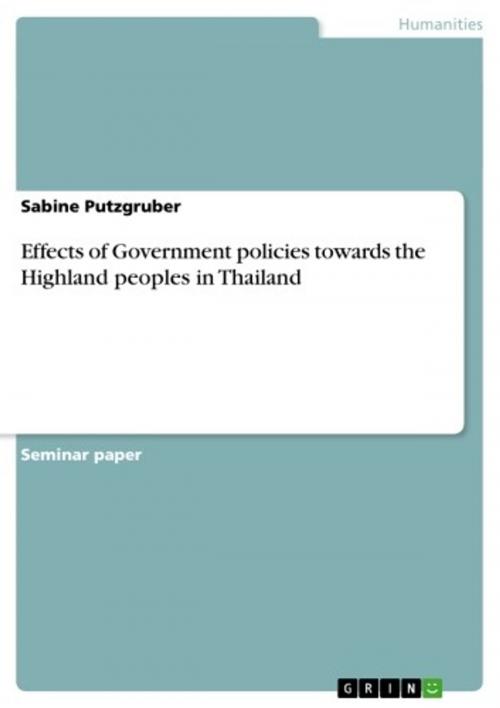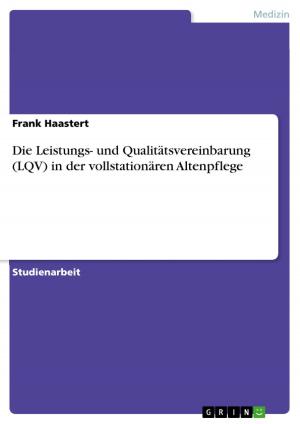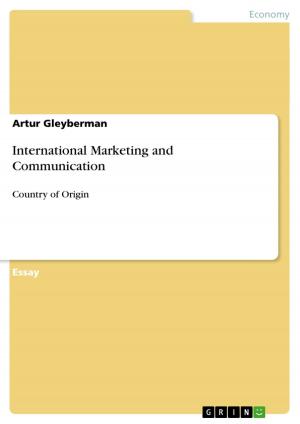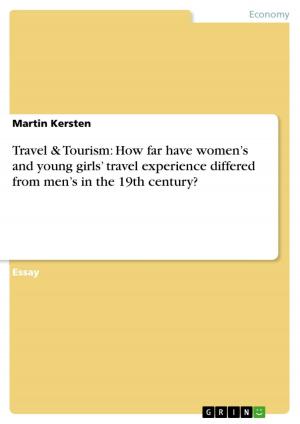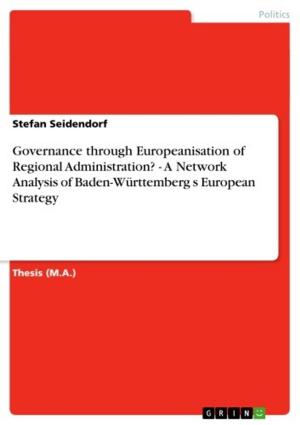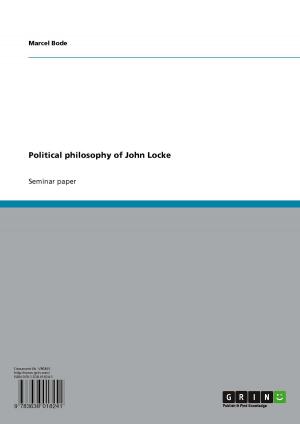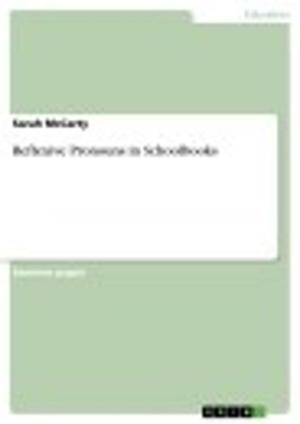Effects of Government policies towards the Highland peoples in Thailand
Nonfiction, Social & Cultural Studies, Social Science, Anthropology| Author: | Sabine Putzgruber | ISBN: | 9783638508261 |
| Publisher: | GRIN Publishing | Publication: | June 5, 2006 |
| Imprint: | GRIN Publishing | Language: | English |
| Author: | Sabine Putzgruber |
| ISBN: | 9783638508261 |
| Publisher: | GRIN Publishing |
| Publication: | June 5, 2006 |
| Imprint: | GRIN Publishing |
| Language: | English |
Seminar paper from the year 2004 in the subject Ethnology / Cultural Anthropology, grade: 1, University of Vienna (Calpoly Thai Study Program 2004), 16 entries in the bibliography, language: English, abstract: This following paper is dedicated to the Highland Peoples of Thailand, which are written about and 'developed' by the Thailand government and others but seldom have the chance to speak or write back. Seemingly their traditional way of living is not fitting into the modern capitalist and globalized world any more, which is surrounding them and new challenges are coming up each day. Individuals and groups have to adjust in some way to the world as it is now only changing but also getting smaller. As they are living within the nation state of Thailand there is not much option for them as to accept the western nationalism concept and the Thais as the dominant group in the state. The way they deal with this situation and the way the Thai government is dealing with it and is trying to improve the situation not leading to problems derived from ethnic differences should be the reason for this paper. The Thai concern for their national identity is valid, given the diversity of minority groups within their border and the rise of ethno political conflicts throughout the world (Kampe 1997:24). As ethno political problems are everywhere in heterogeneous societies a comparative approach has to be taken. Nonetheless will the focus be on the living of Highland Peoples within Thailand and changes which occurred to their communities from the outside over the last decades. We will look into the lives of the six recognized 'Hilltribes' in Thailand and their situation as residents of the state of Thailand. A big issue should be the cultural clash between different cultural heritages and the Thai government actions trying to cope with it. At the end we will think about ways and policies which have been done and policies which in our view should be done. Suggestions would only concern the particular issue of the Highland Peoples living in Thailand and are opted for the best outcome for the those peoples written about, including the Thais. The author is aware of that the outcome is only suggestions and does in no case challenge the autonomy of the peoples involved.
Seminar paper from the year 2004 in the subject Ethnology / Cultural Anthropology, grade: 1, University of Vienna (Calpoly Thai Study Program 2004), 16 entries in the bibliography, language: English, abstract: This following paper is dedicated to the Highland Peoples of Thailand, which are written about and 'developed' by the Thailand government and others but seldom have the chance to speak or write back. Seemingly their traditional way of living is not fitting into the modern capitalist and globalized world any more, which is surrounding them and new challenges are coming up each day. Individuals and groups have to adjust in some way to the world as it is now only changing but also getting smaller. As they are living within the nation state of Thailand there is not much option for them as to accept the western nationalism concept and the Thais as the dominant group in the state. The way they deal with this situation and the way the Thai government is dealing with it and is trying to improve the situation not leading to problems derived from ethnic differences should be the reason for this paper. The Thai concern for their national identity is valid, given the diversity of minority groups within their border and the rise of ethno political conflicts throughout the world (Kampe 1997:24). As ethno political problems are everywhere in heterogeneous societies a comparative approach has to be taken. Nonetheless will the focus be on the living of Highland Peoples within Thailand and changes which occurred to their communities from the outside over the last decades. We will look into the lives of the six recognized 'Hilltribes' in Thailand and their situation as residents of the state of Thailand. A big issue should be the cultural clash between different cultural heritages and the Thai government actions trying to cope with it. At the end we will think about ways and policies which have been done and policies which in our view should be done. Suggestions would only concern the particular issue of the Highland Peoples living in Thailand and are opted for the best outcome for the those peoples written about, including the Thais. The author is aware of that the outcome is only suggestions and does in no case challenge the autonomy of the peoples involved.
